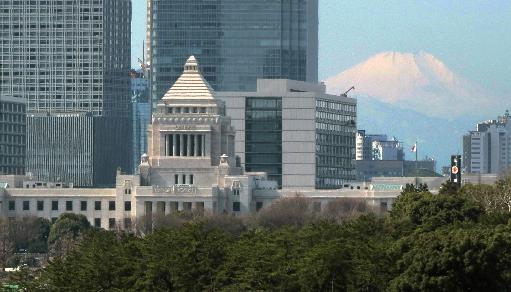TOKYO – A controversial state secrets bill is expected to become law in Japan this week despite objections from a broadening coalition who say the legislation is being rushed through parliament.
Lawyers, journalists, religious leaders and a Nobel physicist are among a growing group of opponents who think the act is worryingly vague and gives too much power to the government.
And an opinion poll released Monday showed increasing disquiet among voters over a law that would dramatically ramp up punishments for people convicted of giving away state secrets – an elastic category that can be expanded by ministers or bureaucrats to cover a wide range of information.
Conservative Prime Minister Shinzo Abe says the bill is necessary to plug a notoriously leaky government machine that prevents chief ally the United States sharing intelligence.
The powerful lower house of parliament passed the bill last week and Abe has vowed to push it through the upper chamber by Friday, provoking accusations of steamrollering.
A survey by the liberal Asahi Shimbun showed 61 percent of voters think the pace of the bill's passage is "problematic", with more than three-quarters of those polled saying the law would create new secrets, rather than better safeguarding existing ones.
The survey of around 2,000 households comes after a string of influential groups have expressed opposition, including The Japan Federation of Bar Associations and more than 2,000 academics, among them 2008 Nobel physicist Toshihide Masukawa.
Clergy have also joined the debate, with Takao Takeda, a Buddhist monk and secretary of Shukyosha Kyujo-no-wa, a multi-faith grouping, saying the bill had echoes of Japan's tragic march towards war last century.
"The bill being discussed now seems very similar to the Public Order Preservation Law" enacted in 1925, which enabled Imperial Japan to arrest anyone who voiced protest against the then government, Takeda said.
"It is important to protect people's rights to know given our history and the way information was hidden in (World War II) and the fact that the government was not very open in the face of the nuclear crisis" triggered by the huge tsunami of 2011.
Under the proposals, information related to defence, diplomacy, counter-intelligence and counter-terrorism can all be classified as a state secret, at the behest of politicians.
There is no provision for independent oversight of the process, leading to claims that inconvenient truths or news of bumbling by an already-opaque government could be declared off-limits.
Asked about the latest poll, Chief Cabinet Secretary Yoshihide Suga told reporters on Monday the government "will answer questions" over the bill during the current parliament sessions.
State snooping has come under the spotlight since ex-CIA employee and NSA contractor Edward Snowden fled to Hong Kong with a trove of classified documents that revealed the reach of the US intelligence machine.






















































